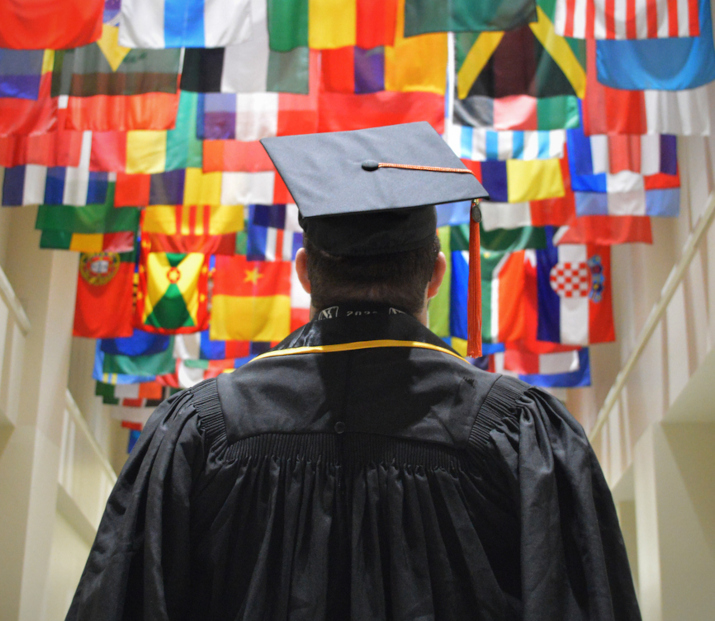
By Kritika Agarwal
Late last month, the Department of Homeland Security and Immigration and Customs Enforcement published a rule in the Federal Register that would make it harder for international students to complete their degree programs in the United States, obtain practical work experience upon graduation, or move on to another degree level.
Currently, international students on F visas and international scholars on J visas enter the country for a flexible period of time known as “duration of status” (D/S). Students and scholars are allowed to remain in the country as long as they are adhering to the requirements of their visa and making normal progress toward completing their degrees or engaging, post-completion, in an authorized practical training program.
Being allowed to enter the United States under the D/S requirements has allowed international students the flexibility they need to complete their degrees, take advantage of programs that offer practical work training upon graduation, and move on to graduate or professional programs.
DHS is now proposing to eliminate D/S and to instead replace it with a fixed period of admission that would end students’ stay in the United States on an exact date, which is not to exceed a period of four years. This change in policy would mean that every student on a visa who takes longer than four years to complete a program or who wants to move from an undergraduate to a graduate degree program would have to apply for an extension of stay with U.S. Citizenship and Immigration Services (USCIS). The new policy would especially affect international students in doctoral programs, which routinely take longer than four years to complete. If the policy takes effect, nearly all international doctoral students at U.S. universities will have to apply for an extension of stay at least once during their term of study.
This isn’t the first time that this policy has been proposed; the first Trump administration issued a similar rule in September 2020. That rule was withdrawn subsequently by the Biden administration.
AAU opposed the rule when it was first issued in 2020. In its comment letter opposing the rule, AAU noted that the policy change would result in unnecessary increased burdens and financial costs on students, institutions, and the government. (USCIS is currently experiencing an all-time-high backlog of pending applications.) Among other things, AAU argued that restricting students’ ability to stay in the United States for the duration of their academic activities would stymie the undergraduate to PhD pipeline, deter prospective students, and damage U.S. competitiveness.
In a press release, DHS said that the rule is designed to prevent foreign students from taking “advantage of U.S. generosity” and becoming “‘forever’ students, perpetually enrolled in higher education courses to remain in the U.S.” DHS asserted that the rule would allow the department to curb visa abuse, “properly vet and oversee” visa holders, and “reduce the number of individuals here on visas.”
But as NAFSA noted recently in an explainer, international students are already among “the most closely tracked visitors to the United States.” Every international student and scholar in the United States is closely tracked by school officials in the Student Exchange and Visitor Information System (SEVIS). As AAU noted in its 2020 letter, DHS already has “the existing tools, resources, and capacity to investigate and handle fraud and abuse concerns” without imposing new limits on students.
DHS’s latest policy is yet another attempt by the Trump administration to make it harder for international students to attend U.S. universities. In June, the State Department announced that it would vet the social media profiles of student visa applicants, and President Trump issued a travel ban that suspended the entry of students from 12 countries.
Some U.S. universities are already experiencing drops in applications from international students; the proposed policy is likely to escalate the trend.
Kritika Agarwal is assistant vice president for communications at AAU.